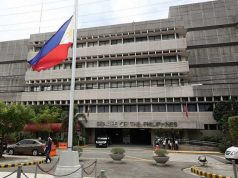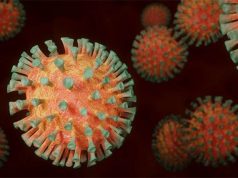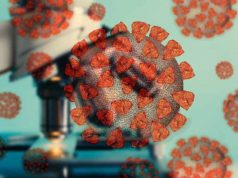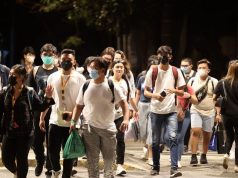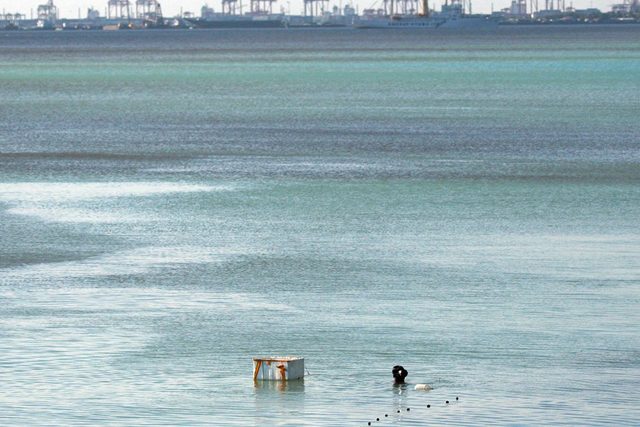
Aside from the improving air quality in Metro Manila sans public transportation, several online users also noticed that Manila Bay became cleaner during the enhanced community quarantine.
Has the Manila Bay waters turned turquoise?
On Wednesday, videos and photos circulating online showed Manila Bay with turquoise-tinted waters prompting some netizens to believe that it’s also the effect of the Luzon-wide quarantine.
However, a Philippine Coast Guard official said that the changed in surface color may be due to harmful pollutants.
“Based on previous reports of Marine Environmental Protection Command, the water’s discoloration occurs when there are pollutants,” said PCG Commodore Arman Balilo in a GMA News report.
International advocacy organization Oceana also urged the Department of Environment and Natural Resources, the Department of Agriculture and the Bureau of Fisheries and Aquatic Resources to further investigate the Manila Bay water discoloration.
“This development requires immediate study and continuous monitoring by experts on the water and its impact on the fisheries resources and marine environment of Manila Bay,” said Gloria Estenzo Ramos, vice president for Oceana in the Philippines.
Oceana and its partners, as well as civil society and the private sectors, oppose the illegal dumping of waste and other chemicals to Manila Bay. It can cause irreversible damage to one of the Philippines’ major marine ecosystems and fisheries.
Apart from its famous sunset, Manila Bay is also known to supply seafood and livelihood to nearby communities.
The non-profit conservation organization cited that a study of National Fisheries and Research Development Institute showed that it is also the fishing ground for sardines, mackerel, mullet (banak), threadfin, bream (bisugo), squid (posit), blue crab, round scad (galunggong), and fusilier (dalagang bukid).
On Thursday, GMA News posted a video of Baseco residents harvesting mussels along the coastline to provide food for their families as they await relief goods from the local government of Manila.
Oceana deemed the discoloration a potential health concern. “The government, while appropriately engulfed in public health response to COVID-19 crisis, should also look into this potential public health and environmental concern, not only for Metro Manila but in nearby provinces, cities and municipalities,” Ramos added.
Asked if the Manila Bay can really become cleaner during enhanced community quarantine, Ramos told Interaksyon that it may pave way for the healing of nature.
“Human activities are the sources of pollution and destruction of our environment. When we stay away, due to ECQ, from activities that cause pollution, destruction and degradation to the natural environment, whether on land, sea or air, nature heals,” she said.
In the same way fisheries management hinders commercial fishing in municipal waters, fisherfolk and villagers reap the benefits of a healthy and bountiful ocean.
Under threat of reclamation
The conservation organization is also among the environmental groups opposing the reclamation of Manila Bay. It is a member of the People’s Network for the Integrity of Coastal Habitats and Ecosystems, an alliance calling for the restoration, instead of reclamation, of the Manila Bay.
Among the newest projects proposed to be developed along the bay’s shorelines include the Sangley International Airport, which was given a Notice of Award by the Cavite Provincial Government just last February.
This came even after President Rodrigo Duterte committed to ban Manila Bay reclamation until the end of his term.
During the enhanced community quarantine, the group is hopeful that reclamation projects are also put on hold.
“As we are in lockdown mode, movements are carefully monitored so it is unlikely that such activities are happening. We hope so,” Ramos said.





